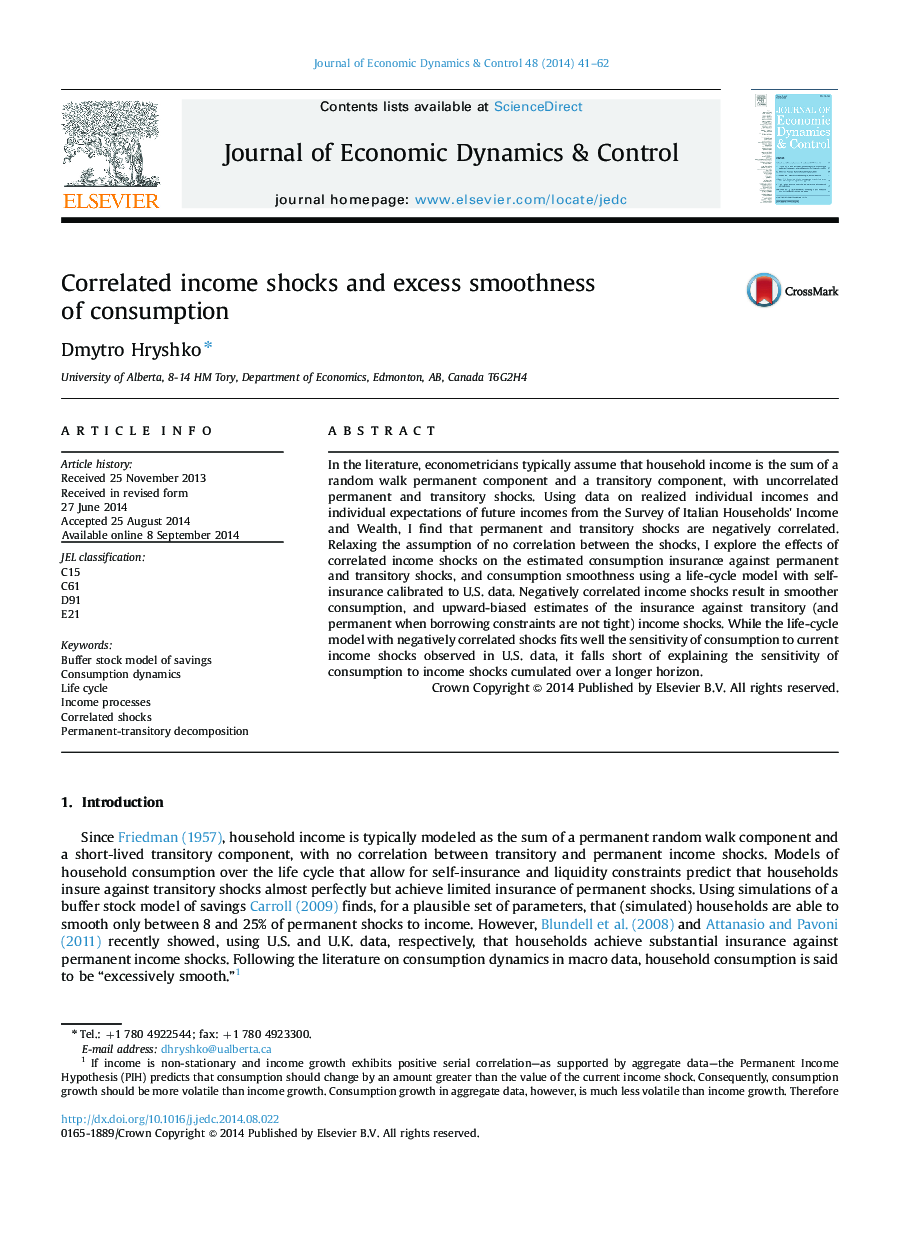| Article ID | Journal | Published Year | Pages | File Type |
|---|---|---|---|---|
| 5098522 | Journal of Economic Dynamics and Control | 2014 | 22 Pages |
Abstract
In the literature, econometricians typically assume that household income is the sum of a random walk permanent component and a transitory component, with uncorrelated permanent and transitory shocks. Using data on realized individual incomes and individual expectations of future incomes from the Survey of Italian Households׳ Income and Wealth, I find that permanent and transitory shocks are negatively correlated. Relaxing the assumption of no correlation between the shocks, I explore the effects of correlated income shocks on the estimated consumption insurance against permanent and transitory shocks, and consumption smoothness using a life-cycle model with self-insurance calibrated to U.S. data. Negatively correlated income shocks result in smoother consumption, and upward-biased estimates of the insurance against transitory (and permanent when borrowing constraints are not tight) income shocks. While the life-cycle model with negatively correlated shocks fits well the sensitivity of consumption to current income shocks observed in U.S. data, it falls short of explaining the sensitivity of consumption to income shocks cumulated over a longer horizon.
Related Topics
Physical Sciences and Engineering
Mathematics
Control and Optimization
Authors
Dmytro Hryshko,
